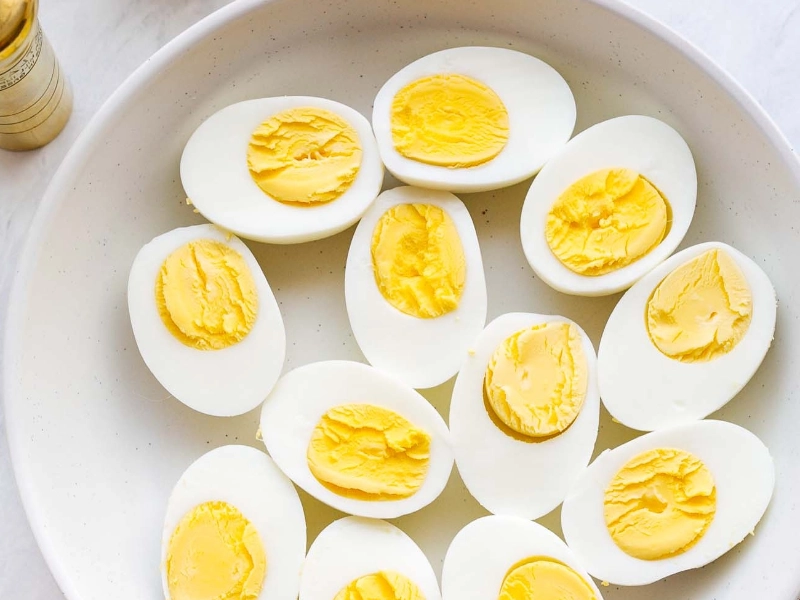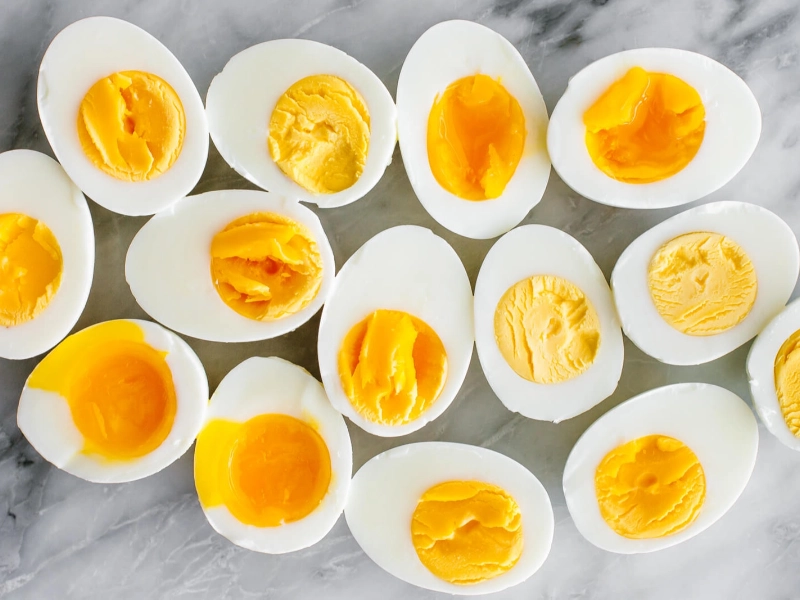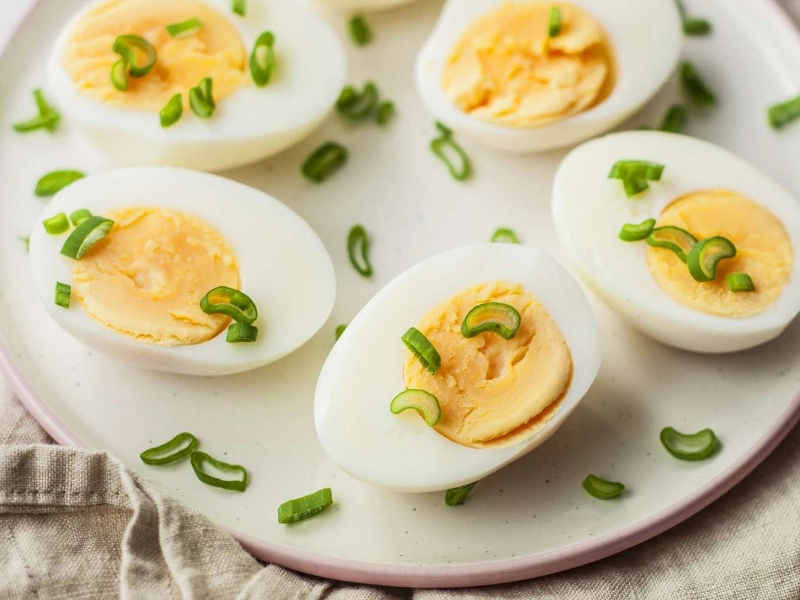How Do You Like Boiled Eggs
Boiled eggs are a nutrient-dense, low-calorie food source that not only provides dietary benefits such as vitamins and minerals, but also promotes eye health, heart and brain health, and keeps bones strong.
Protein

Vitamin D
 Vitamin D is a fat-soluble vitamin produced when sunlight hits the skin and is important for healthy bones, muscles and teeth.
Getting enough sunshine in the winter can be tough, so luckily eggs provide a great source of this important nutrient (as do fortified grains).
Boiled eggs are a great source of lutein and corn yolk, antioxidants that are beneficial for the eyes.
These nutrients can protect the retina from damage and lower the risk of macular degeneration. They can also prevent cataracts.
Vitamin D is a fat-soluble vitamin produced when sunlight hits the skin and is important for healthy bones, muscles and teeth.
Getting enough sunshine in the winter can be tough, so luckily eggs provide a great source of this important nutrient (as do fortified grains).
Boiled eggs are a great source of lutein and corn yolk, antioxidants that are beneficial for the eyes.
These nutrients can protect the retina from damage and lower the risk of macular degeneration. They can also prevent cataracts.
calorie
 Boiled eggs have become the first choice of people who want to live healthier. Not only are they easy to prepare, but they also make a delicious breakfast or snack.
A large boiled egg contains 78 calories, 6 grams of protein, and 5 grams of fat. It also provides a good source of potassium, iron, and zinc.
While eggs don't all have the same heat content, the way you cook them can have a big impact on their nutritional value.
Boiled eggs have become the first choice of people who want to live healthier. Not only are they easy to prepare, but they also make a delicious breakfast or snack.
A large boiled egg contains 78 calories, 6 grams of protein, and 5 grams of fat. It also provides a good source of potassium, iron, and zinc.
While eggs don't all have the same heat content, the way you cook them can have a big impact on their nutritional value.
cholesterol
 Cholesterol is a nutritional substance found in the human body and food sources. It helps in the development of hormones and supports the growth and repair processes of human tissues.
Eggs are an excellent source of albumin and egg yolk protein as well as essential vitamins and minerals such as ephedrine, vitamin D, choline and omega-3.
To eat eggs without increasing your risk of developing heart disease, make sure you cook them correctly: the ideal way to cook eggs is hard-boiled, soft-boiled, or poached in water (don't eat the egg whites).
Cholesterol is a nutritional substance found in the human body and food sources. It helps in the development of hormones and supports the growth and repair processes of human tissues.
Eggs are an excellent source of albumin and egg yolk protein as well as essential vitamins and minerals such as ephedrine, vitamin D, choline and omega-3.
To eat eggs without increasing your risk of developing heart disease, make sure you cook them correctly: the ideal way to cook eggs is hard-boiled, soft-boiled, or poached in water (don't eat the egg whites).









